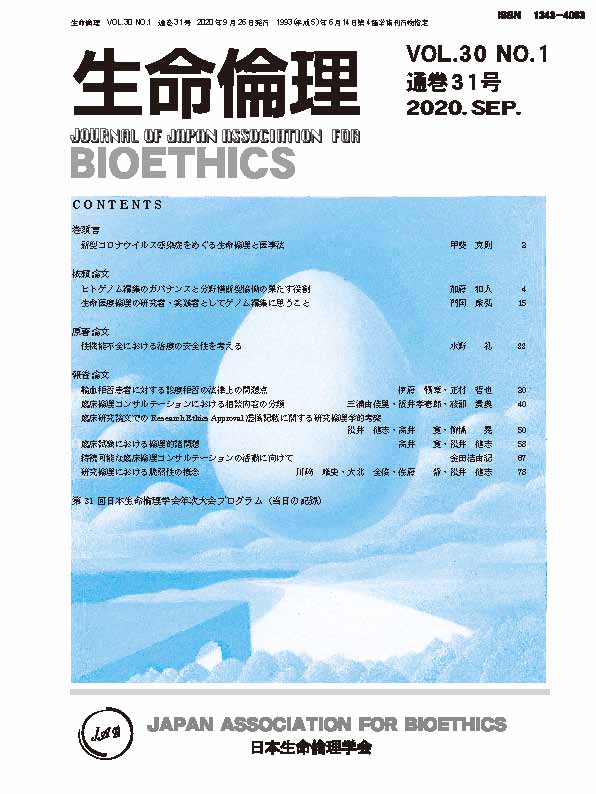Volume 30, Issue 1
Displaying 1-14 of 14 articles from this issue
- |<
- <
- 1
- >
- >|
Contents
-
Article type: Contents
2020 Volume 30 Issue 1 Pages 1-2
Published: September 26, 2020
Released on J-STAGE: August 01, 2021
Download PDF (552K)
Foreword
-
Article type: Foreword
2020 Volume 30 Issue 1 Pages 3
Published: September 26, 2020
Released on J-STAGE: August 01, 2021
Download PDF (896K)
Invited Articles
-
Article type: Invited Articles
2020 Volume 30 Issue 1 Pages 4-14
Published: September 26, 2020
Released on J-STAGE: August 01, 2021
Download PDF (851K) -
Article type: Invited Articles
2020 Volume 30 Issue 1 Pages 15-21
Published: September 26, 2020
Released on J-STAGE: August 01, 2021
Download PDF (786K)
Articles
-
Article type: Articles
2020 Volume 30 Issue 1 Pages 22-29
Published: September 26, 2020
Released on J-STAGE: August 01, 2021
Download PDF (826K)
Reports
-
Article type: Reports
2020 Volume 30 Issue 1 Pages 30-39
Published: September 26, 2020
Released on J-STAGE: August 01, 2021
Download PDF (1011K) -
Article type: Reports
2020 Volume 30 Issue 1 Pages 40-49
Published: September 26, 2020
Released on J-STAGE: August 01, 2021
Download PDF (1248K) -
Ethical Issues with Perjured Statements of Research Ethics Approval in Clinical Research ManuscriptsArticle type: Reports
2020 Volume 30 Issue 1 Pages 50-57
Published: September 26, 2020
Released on J-STAGE: August 01, 2021
Download PDF (899K) -
Article type: Reports
2020 Volume 30 Issue 1 Pages 58-66
Published: September 26, 2020
Released on J-STAGE: August 01, 2021
Download PDF (825K) -
Article type: Reports
2020 Volume 30 Issue 1 Pages 67-77
Published: September 26, 2020
Released on J-STAGE: August 01, 2021
Download PDF (850K) -
Article type: Reports
2020 Volume 30 Issue 1 Pages 78-85
Published: September 26, 2020
Released on J-STAGE: August 01, 2021
Download PDF (832K)
Program of the 31th Annual Meeting
-
2020 Volume 30 Issue 1 Pages 87-98
Published: September 26, 2020
Released on J-STAGE: August 01, 2021
Download PDF (812K)
-
2020 Volume 30 Issue 1 Pages 99
Published: September 26, 2020
Released on J-STAGE: August 01, 2021
Download PDF (576K)
-
2020 Volume 30 Issue 1 Pages 100
Published: September 26, 2020
Released on J-STAGE: August 01, 2021
Download PDF (570K)
- |<
- <
- 1
- >
- >|
